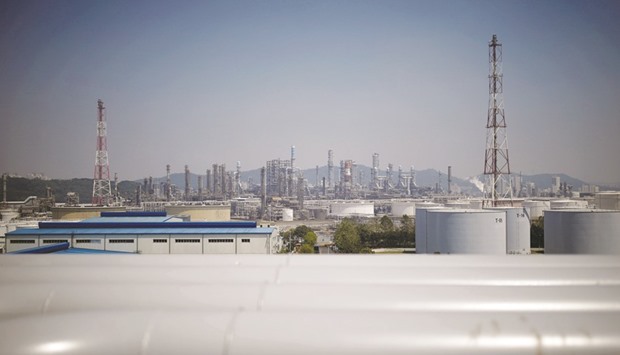South Korea’s industrial production fell by a seasonally adjusted 2.4% in August to post the biggest decline in 19 months, hit by strikes at car factories.
The drop is the sharpest since January 2015 when the index fell 3.5% on monthly terms, and far more severe than the 0.5% fall estimated by analysts in a Reuters poll.
It rose 2.3% from a year earlier.
The August reading follows a revised 1.3% increase in July, versus a preliminary 1.4% gain reported earlier.
Meanwhile, the Nikkei/Markit purchasing managers’ index of South Korea’s manufacturing activity fell to a 14-month low of 47.6 in September on seasonally adjusted terms, underscoring a fragile economic recovery.
Factory output has fallen in a majority of months this year, reflecting waning global demand.
Nationwide strikes at Hyundai Motor Co led a sharp fall in August car production, putting the company’s earnings and sales targets at risk.
Car production fell 17.7% from July, driving the manufacturing index down.
Output of semiconductors fell 5.2%, while that for nonmetallic minerals rose 4.4%.
A finance ministry official said one-off factors such as the strikes were major reasons for the drop, noting the monthly fall would only be about 0.3% if car production was excluded.
Finance Minister Yoo Il-ho said earlier this week the strikes at Hyundai from July this year have caused cumulative losses of nearly 2.5tn won ($2.28bn).
A combination of uncertainties including potential provocations from North Korea, policy changes by the Federal Reserve and the ongoing corporate restructuring at home spelled trouble for growth sentiment, a separate statement from the ministry said.
Yesterday’s data, as well as September shipment figures due today, will be a major factor in forming market expectations of whether the Bank of Korea will decide to cut its interest rate from the current record low 1.25%.
Although output indicators are down, the BoK is likely to pay more attention to “household debt and external factors” unless economic indicators deteriorate significantly, said Chae Hyun-kee, economist at KTB Securities.
He added that market expectations for further policy easing had weakened.
Retail sales increased 2% from July in a sign that domestic demand is improving, which supports Chae’s observation that rate cut calls are waning.
Service sector output grew 0.7% in seasonally adjusted terms on-month after a revised 0.3% decline in July.
Minutes from the central bank’s September rate meeting displayed a more hawkish tone than in previous months as the BoK left the key rate unchanged, suggesting a cut may not be as imminent as some market players have projected.

A factory is seen in Incheon, South Korea. The country’s industrial production fell by a seasonally adjusted 2.4% in August.
